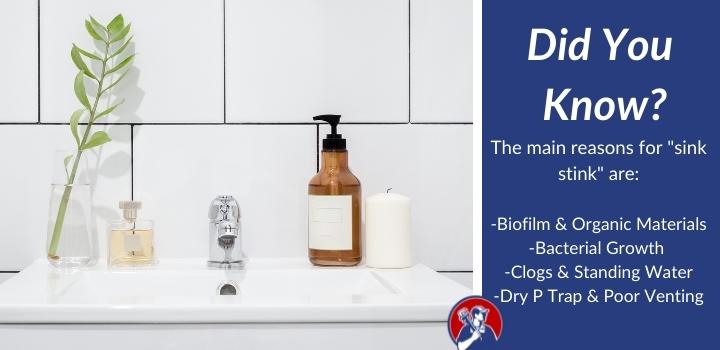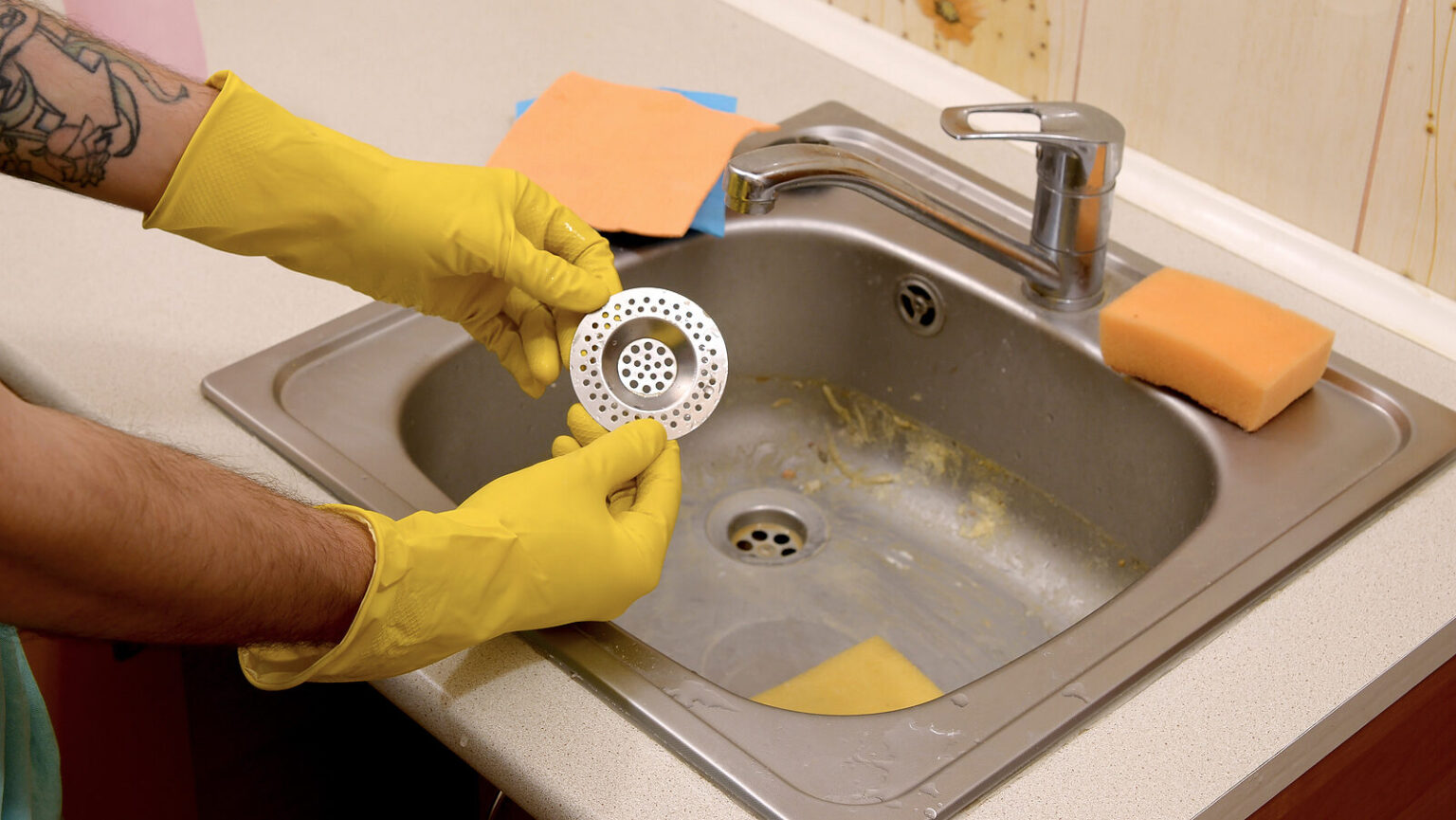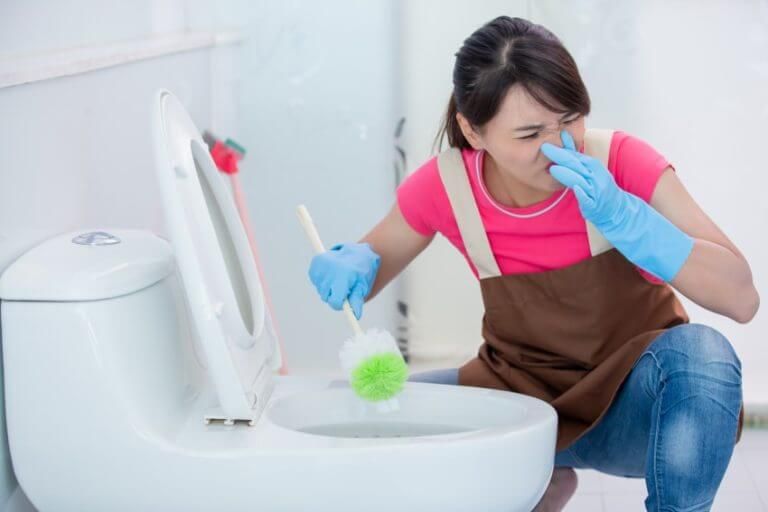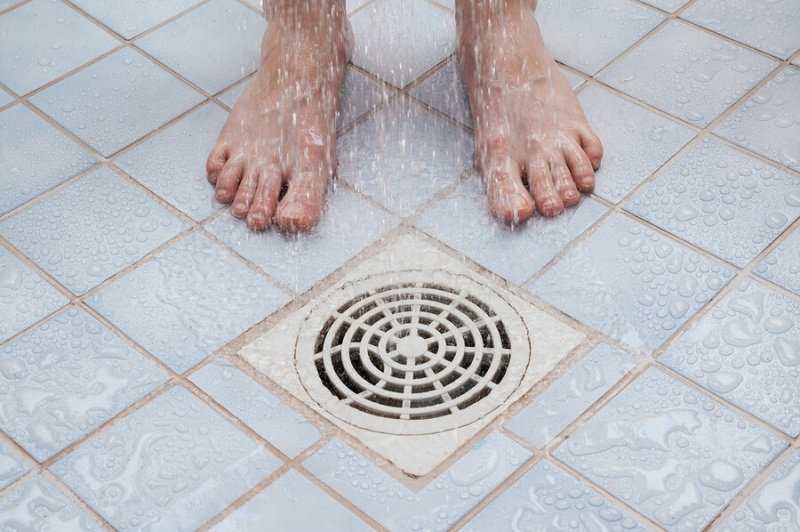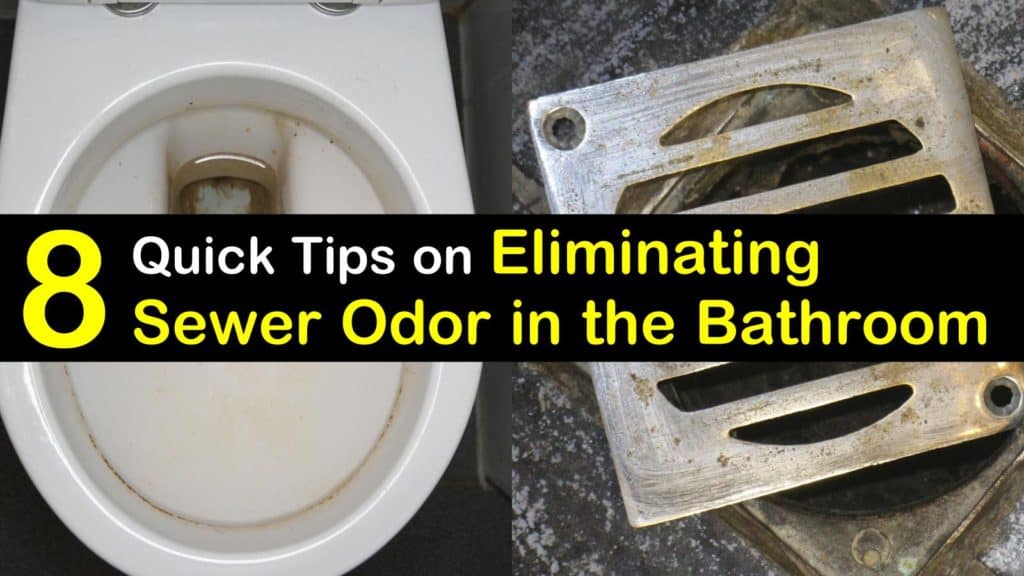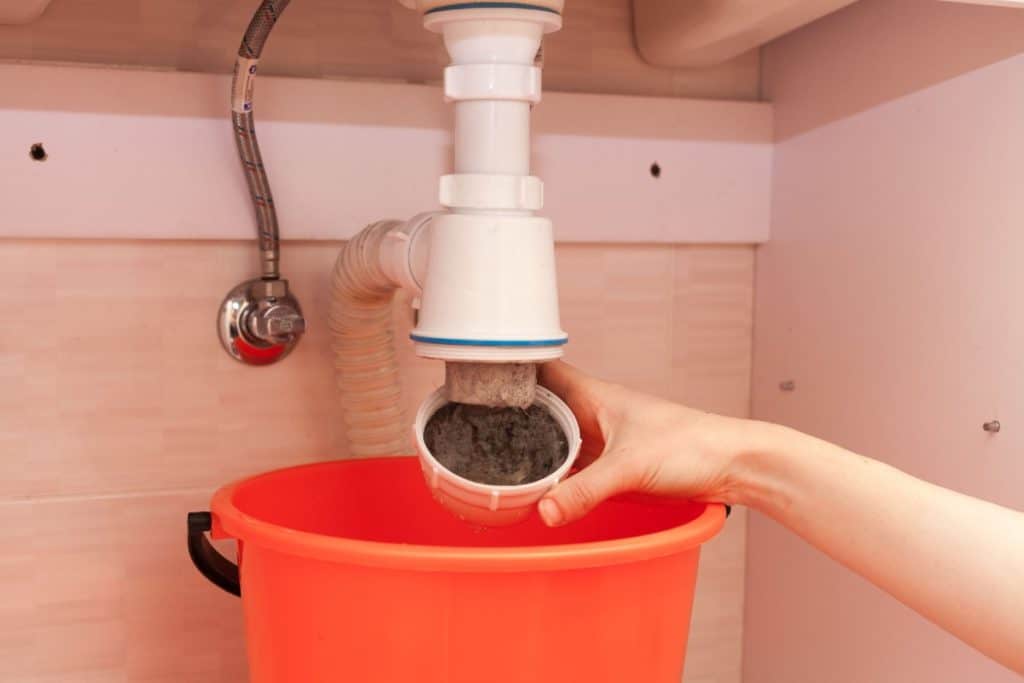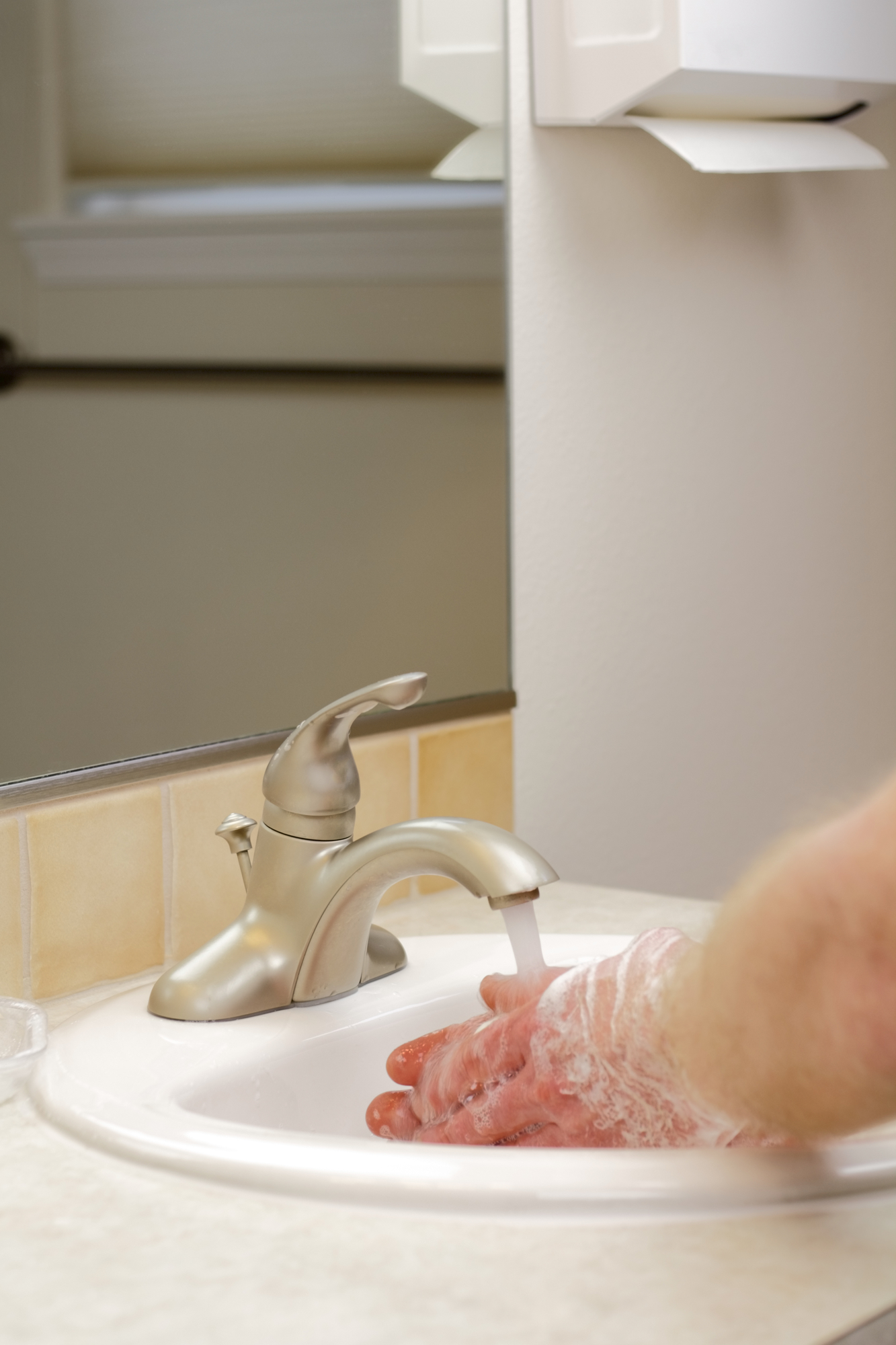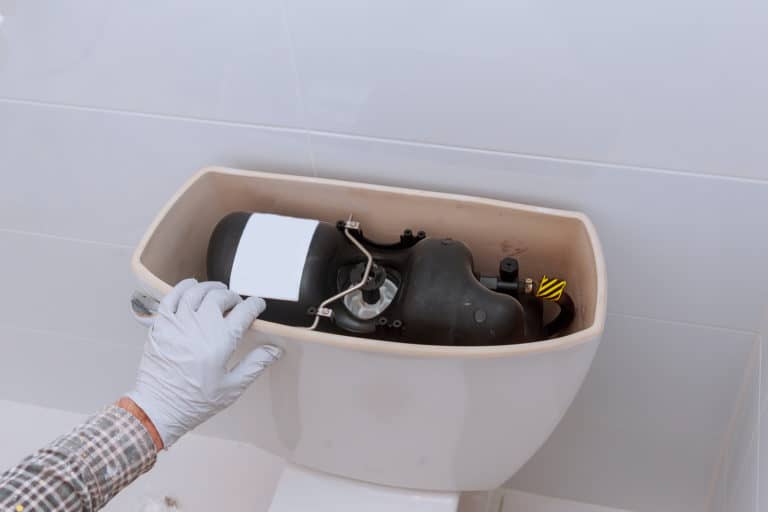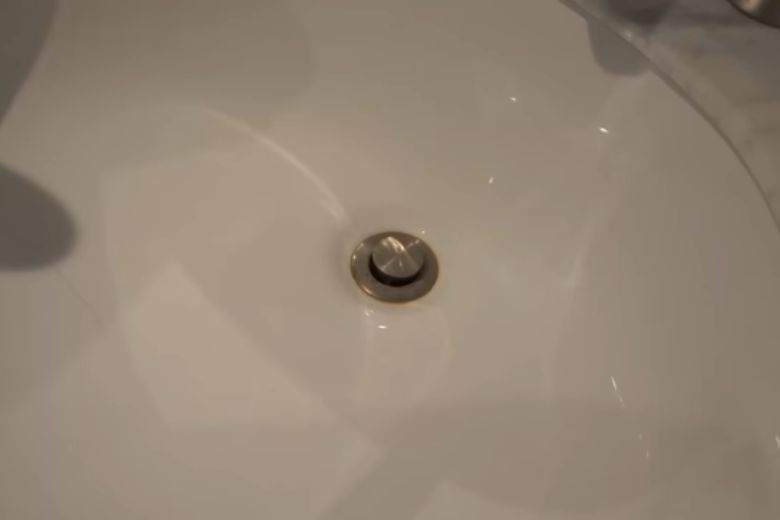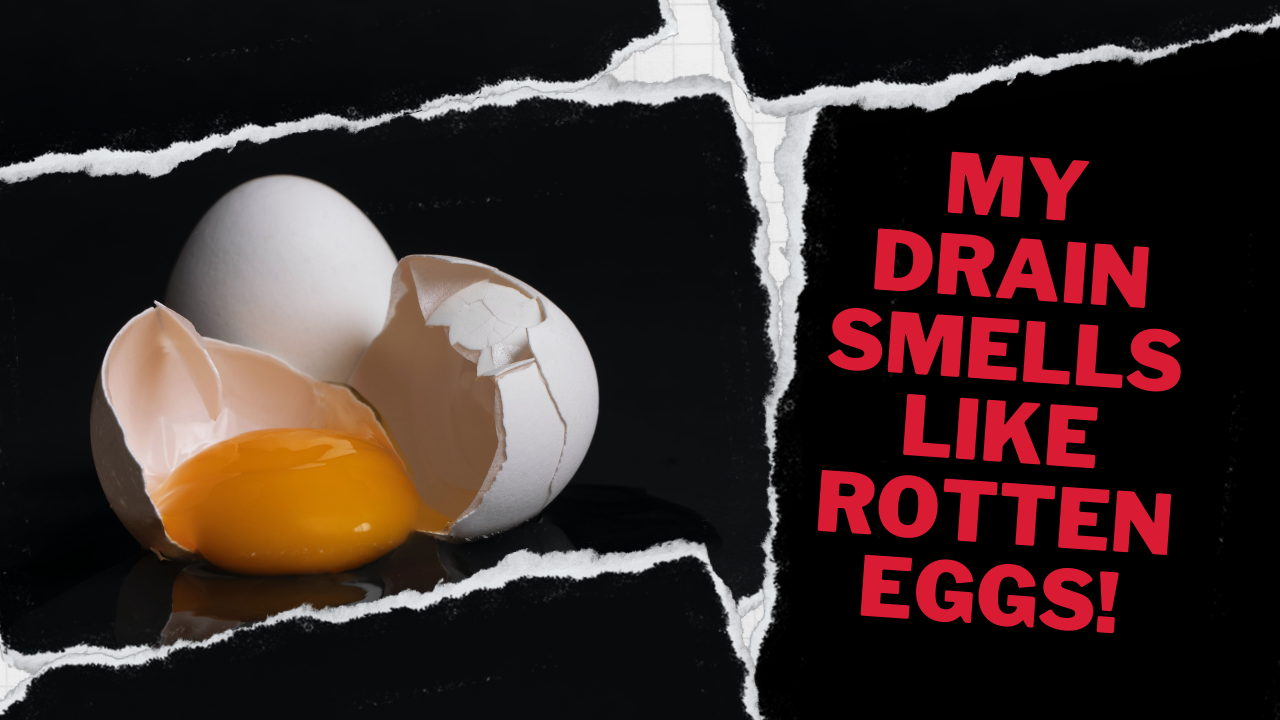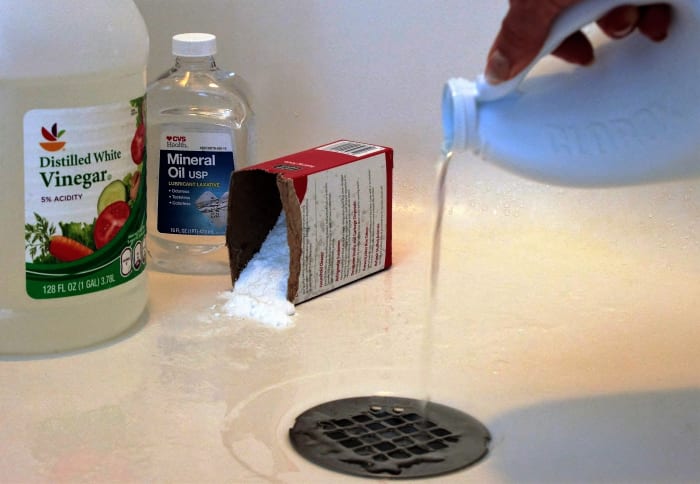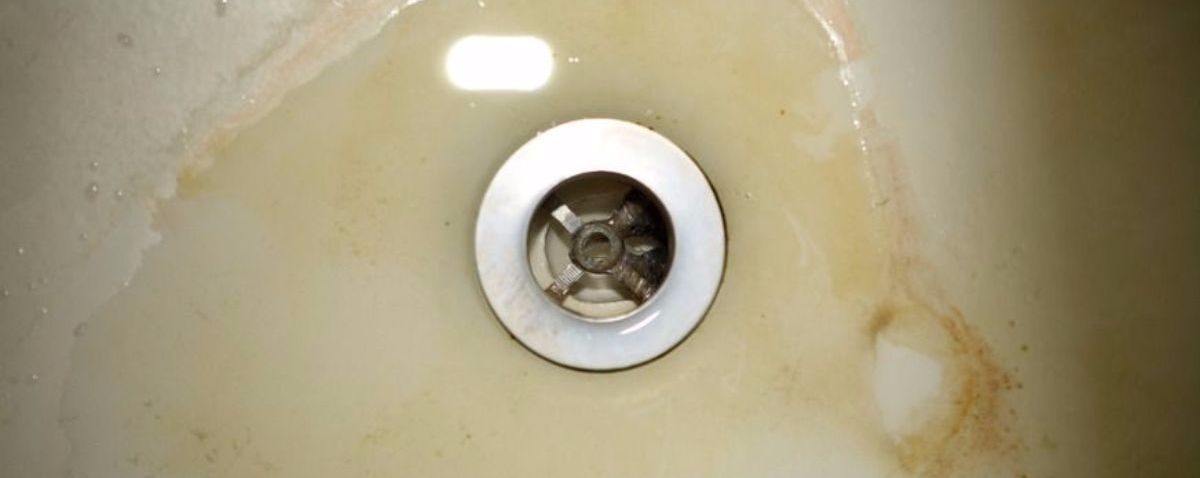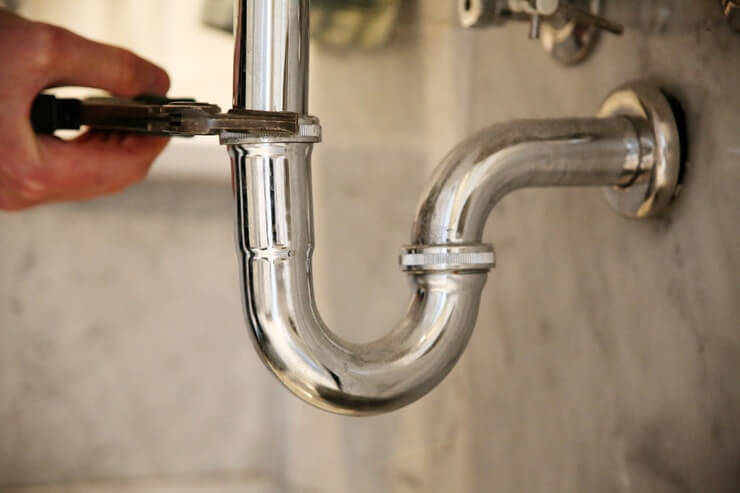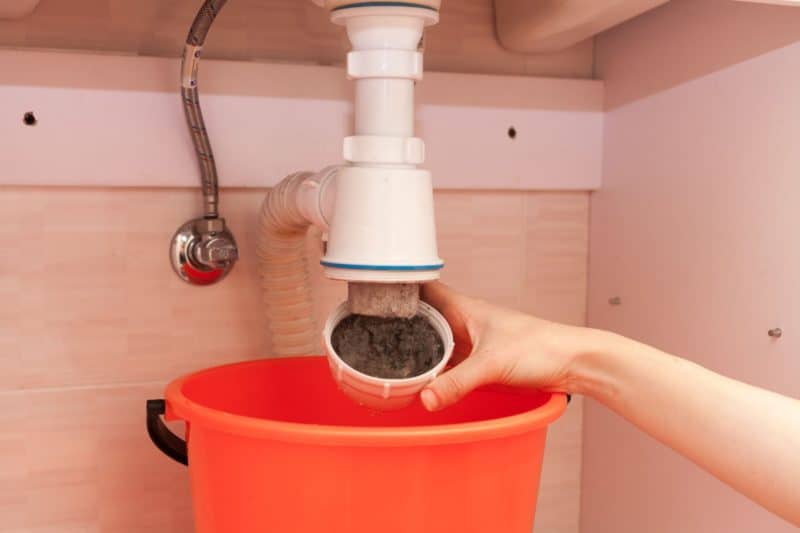If you've noticed an unpleasant sewer smell coming from your bathroom pedestal sink, you're not alone. This is a common problem that many homeowners face, and it can be quite frustrating to deal with. But fear not, as there are several simple and effective methods to get rid of that sewage smell and have your bathroom smelling fresh and clean once again. The first step in getting rid of the sewer smell in your bathroom is to identify the source of the problem. There are several potential causes for the unpleasant odor, and knowing what's causing it will help you find the most effective solution.How to Get Rid of Sewer Smell in Bathroom
One of the most common reasons for a sewer smell in the bathroom is a dirty drain. Over time, hair, soap scum, and other debris can build up in the drain and cause a foul odor. To clean your bathroom sink drain, start by removing the drain stopper and using a small brush or toothbrush to scrub away any buildup on the stopper and around the edges of the drain. Next, use a drain cleaner specifically designed for bathroom sinks to flush out any remaining debris. You can also make your own natural drain cleaner by mixing equal parts baking soda and vinegar and pouring it down the drain. Let it sit for 15-20 minutes before flushing it with hot water.How to Clean a Smelly Bathroom Sink Drain
In addition to a dirty drain, there are other potential causes for a sewer smell in your bathroom. One common culprit is a dry P-trap. The P-trap is a curved pipe under your sink that is designed to hold a small amount of water, which acts as a barrier to prevent sewer gases from entering your bathroom. If the water in the P-trap evaporates, it can allow the sewer smell to come through. To remedy this, simply pour a cup of water down the drain to refill the P-trap. Another possible cause is a cracked or broken vent pipe. The vent pipe is a vertical pipe that extends from your plumbing system to the roof and allows sewer gases to escape. If this pipe is damaged, it can release the odor into your bathroom. In this case, you may need to call a plumber to repair the vent pipe.Causes of Sewer Smell in Bathroom
If the smell is coming from the actual sink itself, there are a few things you can do to fix it. Start by scrubbing the sink with a mixture of baking soda and lemon juice. This will help to remove any buildup or stains that may be causing the smell. You can also try pouring a cup of hydrogen peroxide down the drain to kill any bacteria that may be causing the odor. If the smell persists, it may be coming from the overflow drain. This is the small hole near the top of the sink that prevents the sink from overflowing. To clean the overflow drain, use a pipe cleaner or small brush to scrub it with a mixture of baking soda and vinegar. Rinse with hot water to flush away any remaining debris and odor.How to Fix a Smelly Bathroom Sink
If none of the above solutions seem to be working, there are a few other methods you can try to eliminate the sewer odor in your bathroom. One option is to use an enzyme-based cleaner, which breaks down organic material and eliminates odors. You can also try placing a few drops of essential oils, such as peppermint or eucalyptus, down the drain to mask the smell. If the odor is coming from the water supply, you may need to install a water filter to remove any impurities that may be causing the smell. Additionally, regularly cleaning your bathroom and keeping it well-ventilated can also help to prevent sewer odors from developing.How to Eliminate Sewer Odor in Bathroom
If you've tried all of the above methods and are still struggling with a sewer smell in your bathroom sink, it may be time to call in a professional. A plumber can thoroughly inspect your plumbing system and identify any underlying issues that may be causing the odor. They can also provide more advanced solutions, such as installing a backflow preventer, to keep the smell from coming back. Another option is to replace your bathroom pedestal sink with a different style, such as a vanity with an enclosed cabinet. This can help to prevent the spread of sewer odors and make it easier to keep your bathroom smelling fresh and clean.How to Remove Sewer Smell from Bathroom Sink
To prevent future sewer smells in your bathroom, it's important to understand why they occur in the first place. As mentioned earlier, a dry P-trap, damaged vent pipe, or dirty drain can all contribute to the smell. But other factors, such as a clogged sewer line or a damaged sewer vent, can also cause sewer odors to linger in your bathroom. If you're experiencing frequent sewer smells in your bathroom, it's best to have a professional plumber inspect your plumbing system to identify and address any underlying issues.Why Does My Bathroom Sink Smell Like Sewage
If you're dealing with a strong sewer gas smell in your bathroom, it's important to take action immediately. In addition to the methods mentioned above, you can also try pouring a cup of bleach down the drain to kill any bacteria and eliminate the odor. However, be sure to wear gloves and avoid mixing bleach with other cleaning products. If the smell is coming from a clogged sewer line, it's best to leave the unclogging to the professionals. Attempting to unclog a sewer line on your own can be dangerous and may result in further damage to your plumbing system.How to Get Rid of Sewer Gas Smell in Bathroom
The P-trap is not the only trap in your bathroom sink. The sink trap, also known as the U-bend, is located beneath the sink and collects debris and can develop a foul odor over time. To clean the sink trap, start by placing a bucket or bowl beneath it to catch any water or debris that may come out. Next, use a wrench to loosen the slip nuts on each side of the trap and remove it. Clean the trap with a mixture of baking soda and vinegar, then rinse it with hot water and reattach it to the pipes.How to Clean a Smelly Bathroom Sink Trap
The best way to prevent sewer smells in your bathroom sink is to practice regular maintenance and cleaning. This includes regularly cleaning the sink, drain, and overflow drain with natural or commercial cleaners, as well as keeping the P-trap and sink trap clear of debris. It's also important to address any plumbing issues or damages promptly to prevent them from turning into bigger problems. And as always, proper ventilation in your bathroom can help to keep odors at bay.How to Prevent Sewer Smell in Bathroom Sink
Causes of a Sewage Smell in Your Bathroom Pedestal Sink

Possible Plumbing Issues
 If you've noticed a strong sewage smell coming from your bathroom pedestal sink, it can be quite unpleasant and leave you feeling frustrated. Not to mention, it can also be a potential health hazard. While there can be various reasons for this unpleasant odor, one of the most common causes is plumbing issues.
Blocked Drain
One possible reason for the sewage smell in your bathroom pedestal sink is a blocked drain. As water and debris flow down the drain, it can get stuck and build up over time, trapping bacteria and creating a foul odor. This blockage can also cause slow drainage and even lead to leaks in your plumbing system if left untreated.
Broken Vent Pipe
Another potential culprit for the sewage smell in your bathroom sink could be a broken or damaged vent pipe. A vent pipe allows for proper ventilation in your plumbing system, preventing odors from building up and causing a foul smell. If this pipe is broken or disconnected, it can cause the sewage smell to linger in your bathroom.
If you've noticed a strong sewage smell coming from your bathroom pedestal sink, it can be quite unpleasant and leave you feeling frustrated. Not to mention, it can also be a potential health hazard. While there can be various reasons for this unpleasant odor, one of the most common causes is plumbing issues.
Blocked Drain
One possible reason for the sewage smell in your bathroom pedestal sink is a blocked drain. As water and debris flow down the drain, it can get stuck and build up over time, trapping bacteria and creating a foul odor. This blockage can also cause slow drainage and even lead to leaks in your plumbing system if left untreated.
Broken Vent Pipe
Another potential culprit for the sewage smell in your bathroom sink could be a broken or damaged vent pipe. A vent pipe allows for proper ventilation in your plumbing system, preventing odors from building up and causing a foul smell. If this pipe is broken or disconnected, it can cause the sewage smell to linger in your bathroom.
Other Factors Contributing to the Smell
 Aside from plumbing issues, there are other factors that could be contributing to the sewage smell in your bathroom pedestal sink. These include:
Improper Installation
If your bathroom pedestal sink was not installed correctly, it can lead to various issues, including a sewage smell. A poorly installed sink can cause water to pool and become stagnant, leading to bacteria growth and an unpleasant odor.
Infrequent Use
If you have a bathroom that is not frequently used, the water in the sink's P-trap may have evaporated, allowing sewer gases to escape into your bathroom. This can cause a sewage smell to permeate from your sink.
Aside from plumbing issues, there are other factors that could be contributing to the sewage smell in your bathroom pedestal sink. These include:
Improper Installation
If your bathroom pedestal sink was not installed correctly, it can lead to various issues, including a sewage smell. A poorly installed sink can cause water to pool and become stagnant, leading to bacteria growth and an unpleasant odor.
Infrequent Use
If you have a bathroom that is not frequently used, the water in the sink's P-trap may have evaporated, allowing sewer gases to escape into your bathroom. This can cause a sewage smell to permeate from your sink.
How to Get Rid of the Sewage Smell
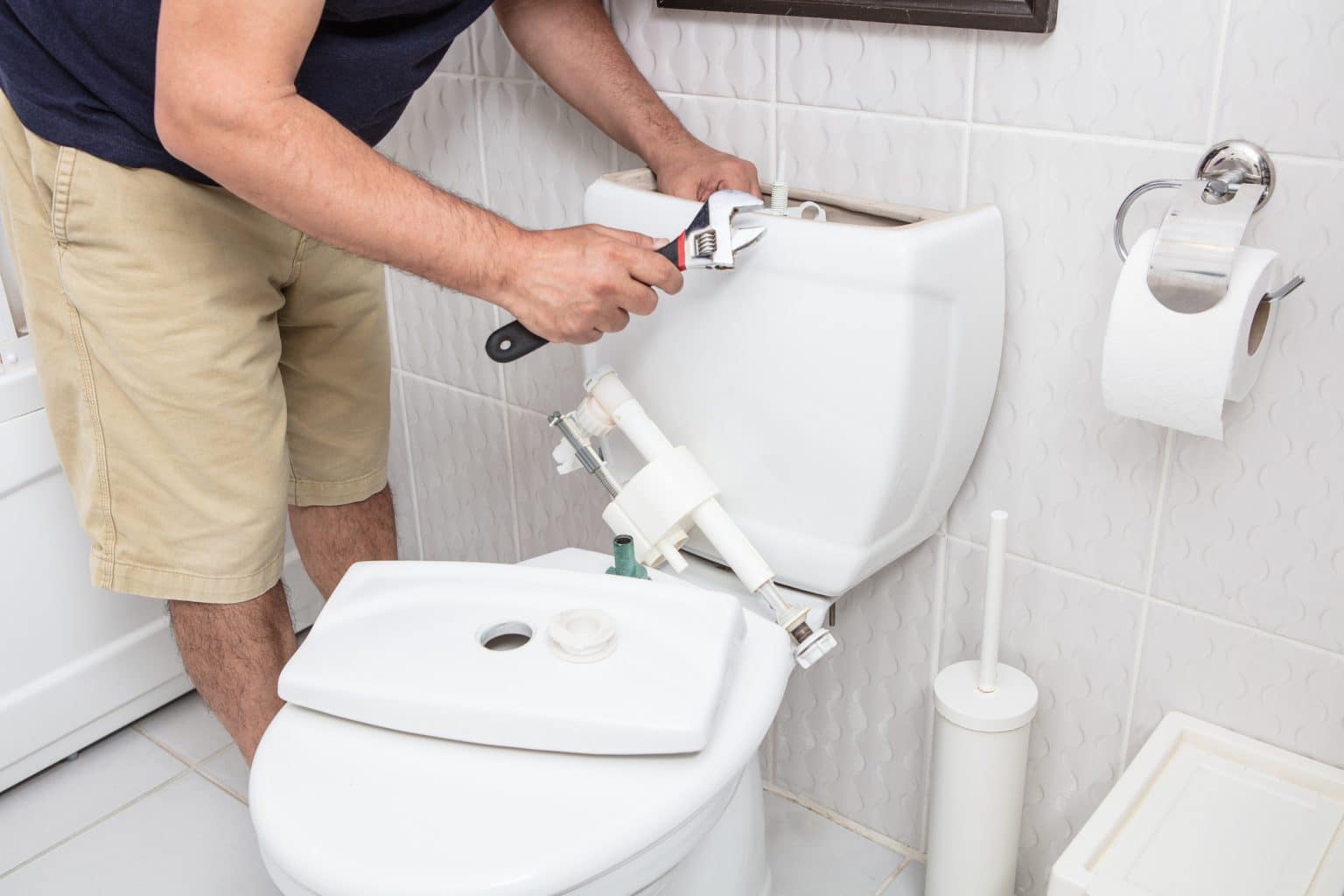
Try These Solutions
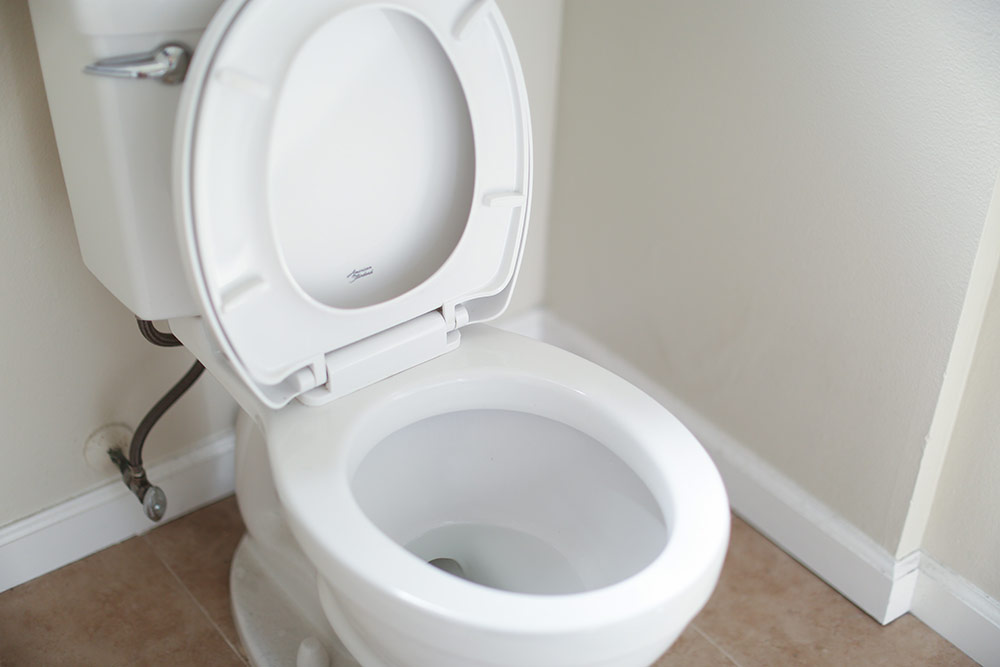 Now that you know some of the possible causes of a sewage smell in your bathroom pedestal sink, here are some solutions you can try to get rid of it:
Clean the Drain
If the smell is coming from a blocked drain, try using a plunger or plumbing snake to remove any blockages. You can also pour a mixture of hot water, baking soda, and vinegar down the drain to help break down any buildup.
Check the Vent Pipe
Inspect the vent pipe for any damage or disconnections. If you find an issue, it's best to call a professional plumber to fix it.
Run Water in Unused Sinks
If you have a bathroom that is not frequently used, make sure to run water in the sink every few days to keep the P-trap filled and prevent sewer gases from escaping.
Now that you know some of the possible causes of a sewage smell in your bathroom pedestal sink, here are some solutions you can try to get rid of it:
Clean the Drain
If the smell is coming from a blocked drain, try using a plunger or plumbing snake to remove any blockages. You can also pour a mixture of hot water, baking soda, and vinegar down the drain to help break down any buildup.
Check the Vent Pipe
Inspect the vent pipe for any damage or disconnections. If you find an issue, it's best to call a professional plumber to fix it.
Run Water in Unused Sinks
If you have a bathroom that is not frequently used, make sure to run water in the sink every few days to keep the P-trap filled and prevent sewer gases from escaping.
Call a Professional
 If none of these solutions work, or if you are unsure of the cause of the sewage smell, it's best to call a professional plumber. They can properly diagnose and fix the issue, ensuring that your bathroom pedestal sink is odor-free.
In conclusion, a sewage smell coming from your bathroom pedestal sink is not only unpleasant but can also indicate potential plumbing issues. By understanding the possible causes and trying some of the solutions mentioned above, you can eliminate the smell and maintain a fresh and clean bathroom. Remember, if the smell persists, don't hesitate to call a professional for assistance.
If none of these solutions work, or if you are unsure of the cause of the sewage smell, it's best to call a professional plumber. They can properly diagnose and fix the issue, ensuring that your bathroom pedestal sink is odor-free.
In conclusion, a sewage smell coming from your bathroom pedestal sink is not only unpleasant but can also indicate potential plumbing issues. By understanding the possible causes and trying some of the solutions mentioned above, you can eliminate the smell and maintain a fresh and clean bathroom. Remember, if the smell persists, don't hesitate to call a professional for assistance.

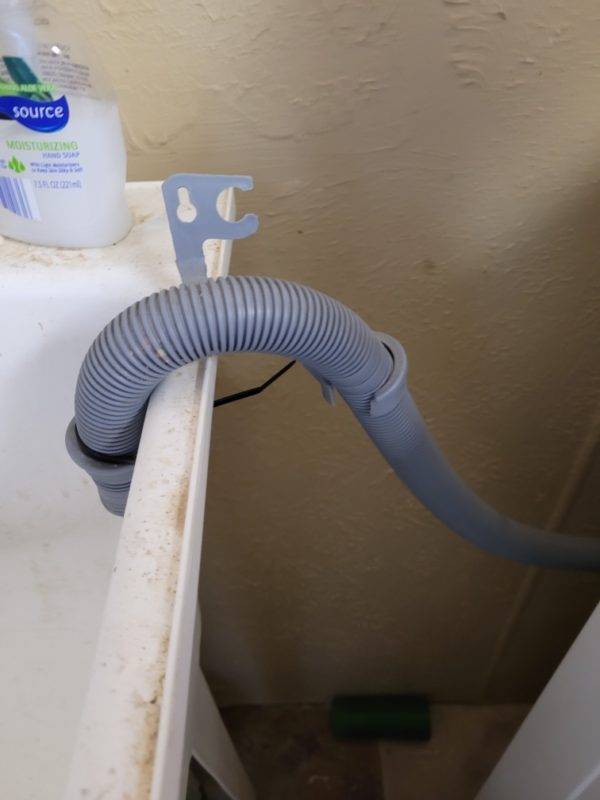



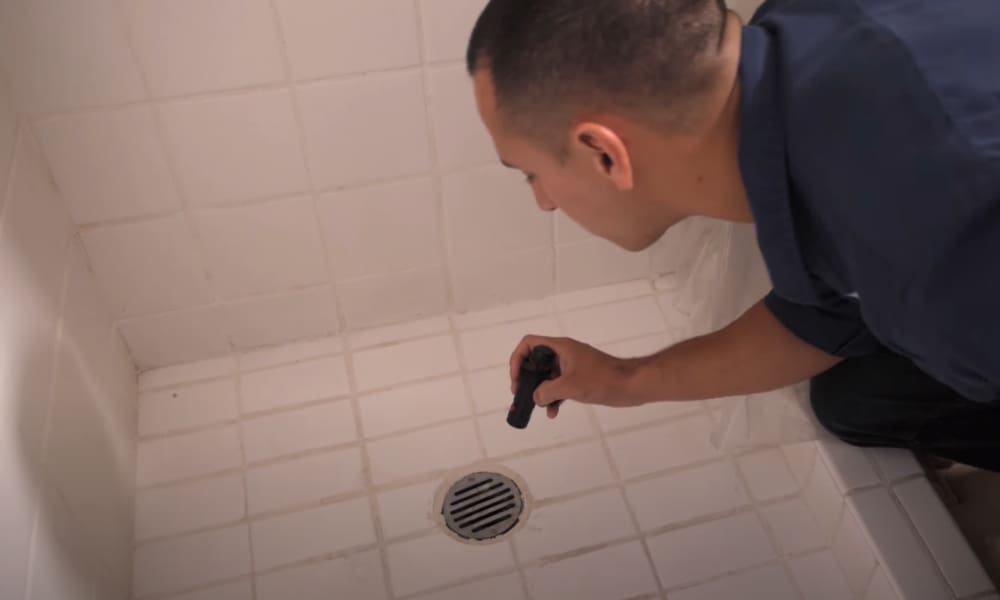




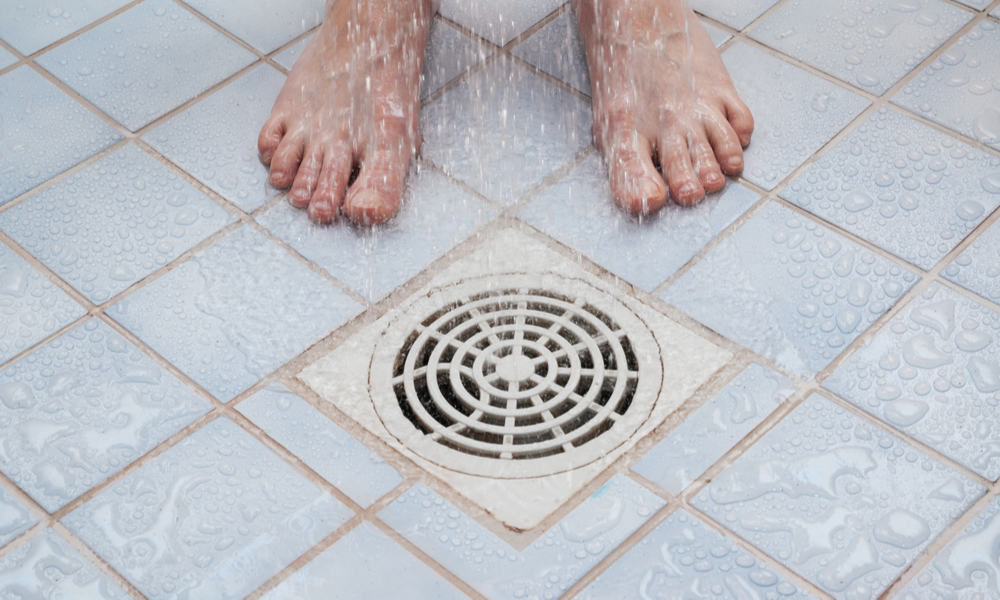




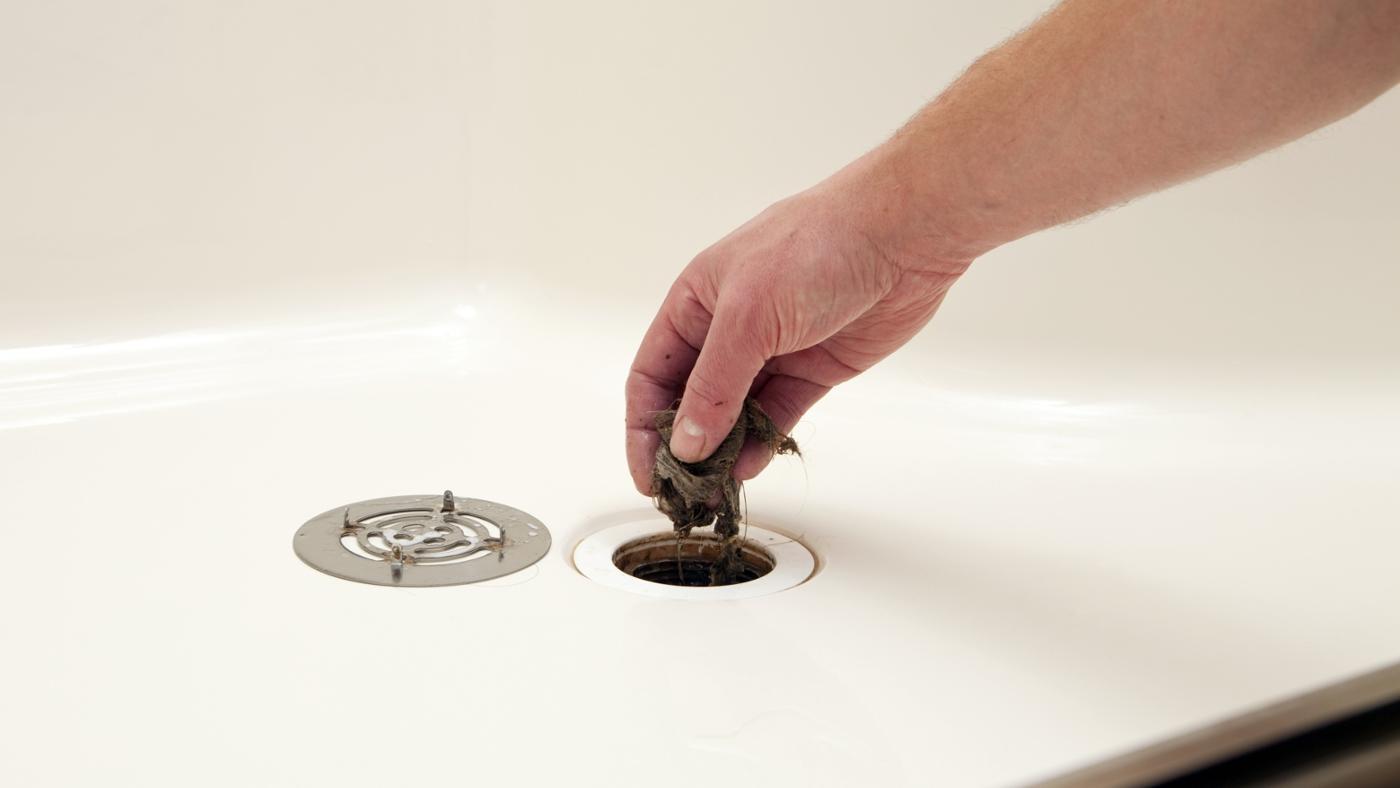




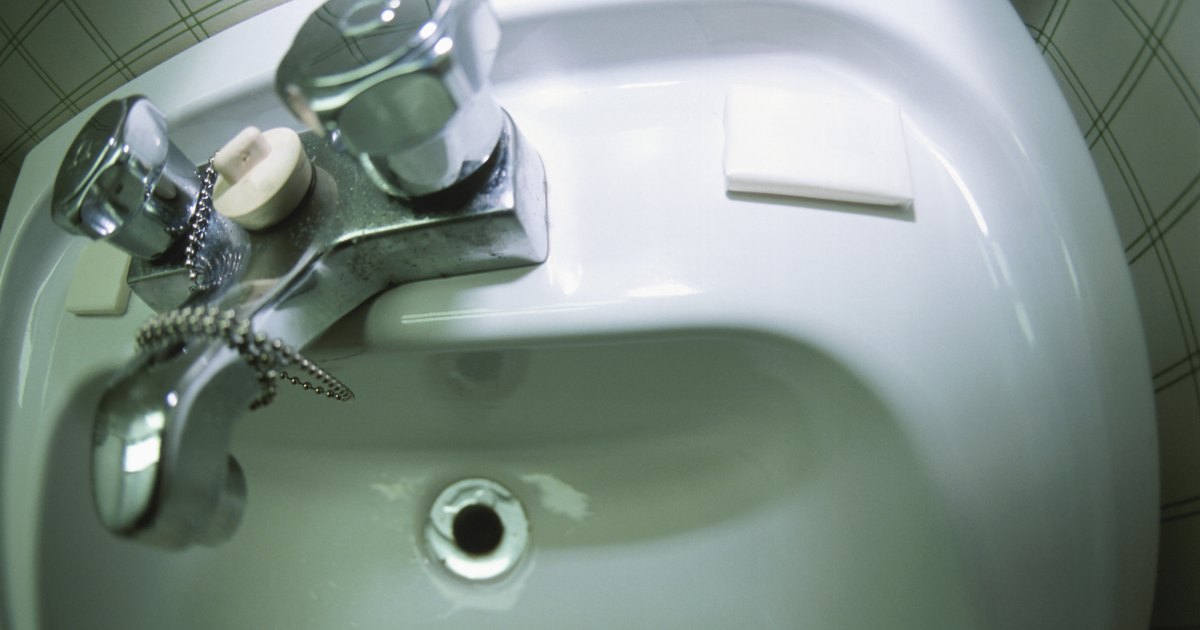

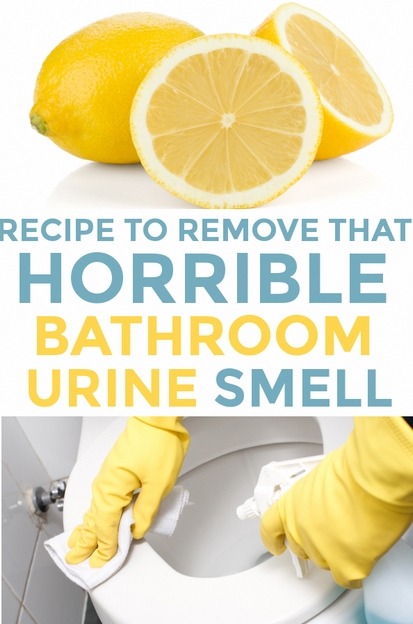

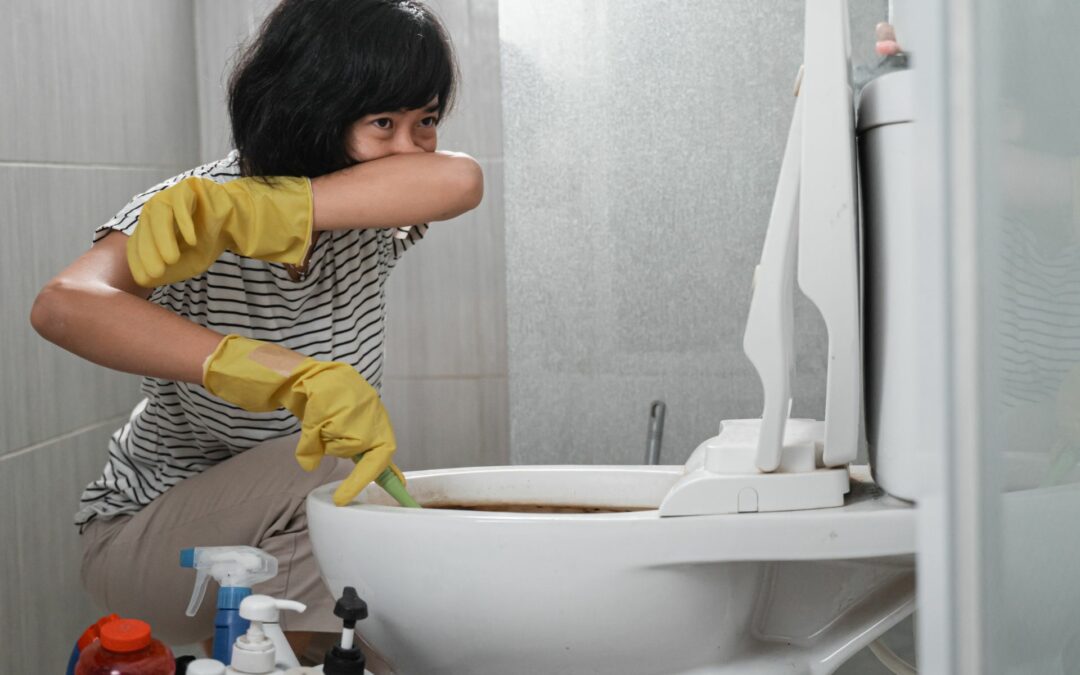
.jpg)









